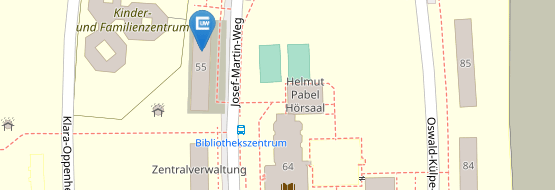Virtual Exchange - Experience intercultural dialogue from home!
About the programme
Together with soliya, the Career Centre offers students the opportunity to acquire intercultural skills in a digital setting. You can choose between two different programmes: Global Circles and Climate Virtual Exchange (CliVex).
Framework conditions
These courses offer the opportunity to discuss current social and political issues with students from different universities abroad. This not only strengthens your understanding of global interrelationships and critical thinking, but also transversal skills such as a sense of responsibility and presentation skills.
Compensation
The courses can be booked via the ASQ pool. This allows students to collect between 3-5 ECTS points. You also have the opportunity to take Virtual Exchange as part of your Professional Skills Certificate.
Further information
- Engage in discussion and connect with people from other countries and cultures
- Learn from and with academic experts
- Improve your language and communication skills
- Develop skills that are essential to working in a virtual and intercultural environment
- Boost your self-confidence, capacity for empathy and intellectual curiosity
- Become part of the international Virtual Exchange network
During the first face-to-face session, you will receive an introduction to the idea behind the Virtual Exchange programme and learn how to identify your personal skill set.
The second session will be devoted to sharing experiences with your fellow participants and reflecting on the online sessions and the digital and intercultural skills you have acquired.
If you are unable to attend a face-to-face session, we can schedule a one-on-one session for another date.
Facilitators moderate the discussion in the talking groups.
Remaining neutral in the discussion, they try to facilitate an authentic and respectful dialogue between the participants. While they do not engage in the discussion itself and remain in the background, their overall aim is to ensure that everybody has a chance to speak and be heard.
Furthermore, facilitators are responsible for creating a safe and effeective learning environment. The training of facilitators includes the development of competences such as active listening, summarising, rephrasing and creation of group dynamics. Facilitator are constantly training reflection, multi-tasking and team work.
Click here to learn more about the job of a facilitator and training opportunities.


